A review and sample photos of the Leica Summicron 35mm f/2 (I model, old model) used with film SLR cameras, digital SLR cameras, and digital mirrorless cameras.
- Please see the disclaimer regarding advertising here.
- Italicized links in the text are advertisement links that take you to other sites.
Table of contents
Gallery
The following cameras were used to take the sample photos:
- LEICA R8 +FUJIFILM 100 +MINOLTA DiMAGE Scan Multi PRO
- LEICA R8 +Digital Module R(DMR)
- CANON EOS 1Ds Mk-III & CANON EOS-1D Mark-IV
- LEICA SL Typ601
- SONY α7Sii
Review
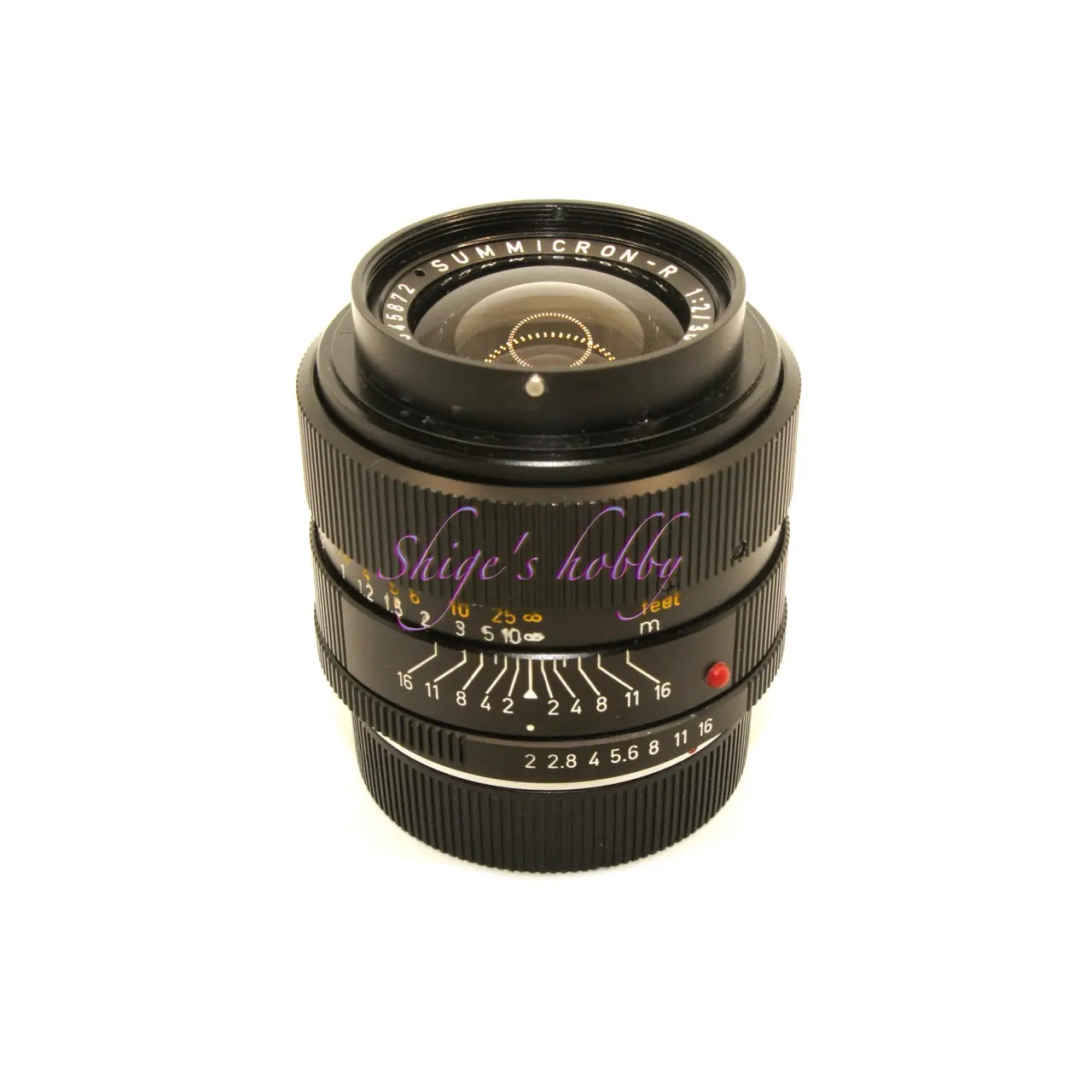
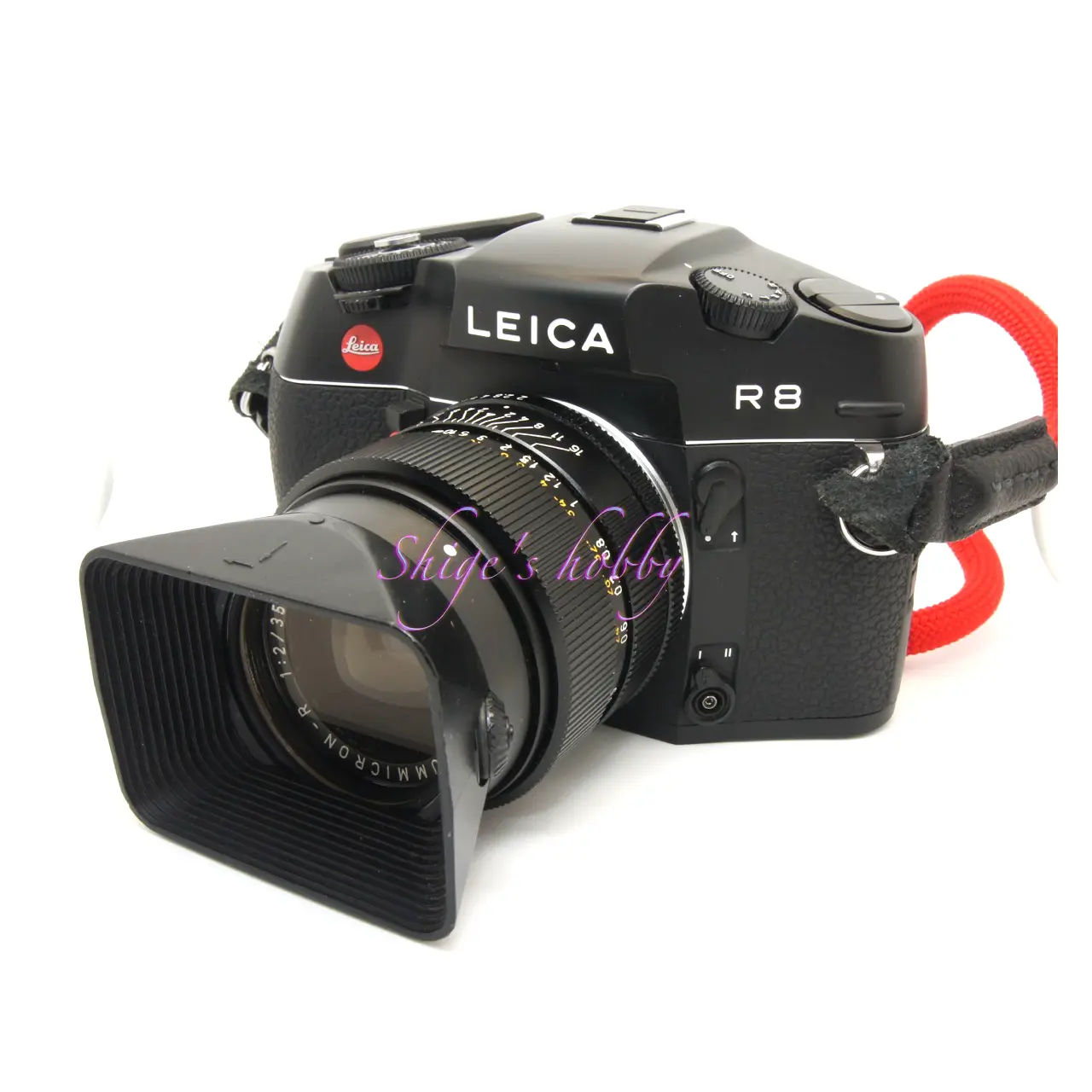
1.Overview
The Summicron R 35mm Type I (old model) is a 35mm Leica R-mount lens released in 1970, with approximately 11,000 units produced.
It consists of 9 elements in 7 groups, weighs 500g, has an 8-blade aperture, and a minimum focusing distance of 0.3m.
This Type I lens was released in 1-cam, 2-cam, and 3-cam versions, and features a rectangular 12509 hood that can accommodate Series 7 filters and a rotating mechanism for PL filters.
This 12509 hood is also used with the Elmarit R 28mm (first generation) and Elmarit R 35mm (second generation).
The lens I own is a 3-cam modified with a ROM terminal, making it a rare lens, as it is not often seen on eBay. I purchased it on consignment from a sour shop above a church in Ginza.
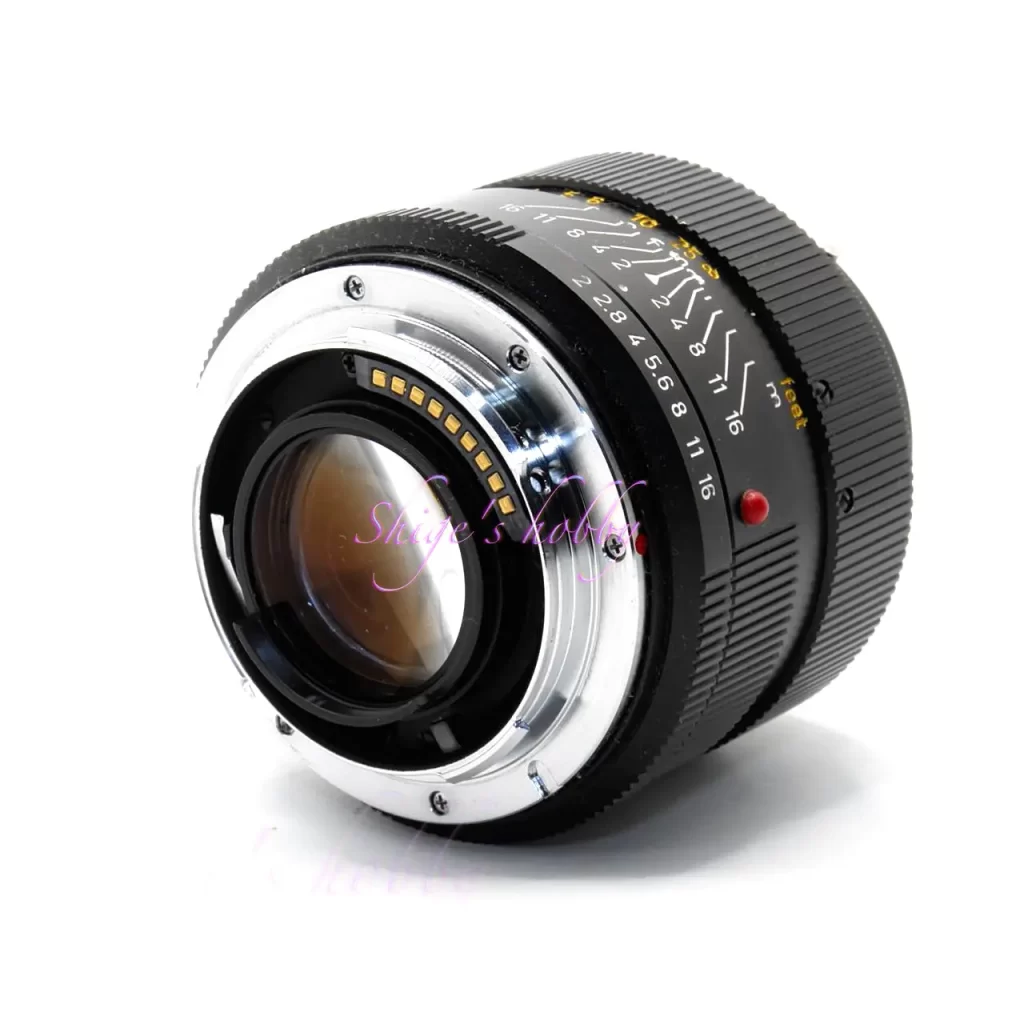
2.Usability
The Summicron R 35mm I-type (older model) has an older lens design, which means that compared to the sharpness in the center, the resolution in the corners is noticeably lower and rougher.
This lens is best suited to scenes that emphasize the subject near the center, so if you want to obtain a consistent image across the entire 35mm frame, it’s better to use a more recent lens.
■Film SLR Camera
When the SUMMICRON R 35mm I-type was attached to the LEICA R8, the balance was very good, and focusing was possible without any problems using the standard viewfinder screen (14343).
When shooting color negative film, the resolution was just right, but with subjects requiring fine detail, such as landscapes, distortion could be seen in the corners of the frame despite the focus being at the correct plane.
■Digital SLR Camera
The Digital Module R (DMR) has 10 megapixels and a smaller sensor size than 35mm film, which means the edges of the image are cropped, resulting in better image quality. However, the focal length is increased by the cropped area. A 35mm focal length is multiplied by the sensor’s conversion factor of 1.37, resulting in a 48mm equivalent distance in 35mm film format.
While the actual focal length differs, the shooting range is roughly the same, making it a good alternative to the Summicron R 50mm.
The 1Ds Mark-III has 20 megapixels and the same surface area as 35mm film, providing excellent central image quality, but with some subjects, the graininess of the edges can be more noticeable than with film.
The 1D Mark-IV has 16 megapixels and a smaller sensor size than 35mm film, which means the edges of the image are cropped, resulting in better image quality. However, the focal length becomes longer by the amount cut, and when a focal length of 35mm is multiplied by the sensor’s conversion coefficient of 1.3, it becomes 45.5mm in 35mm film equivalent.
Looking at the shooting range alone, the 1D Mark-IV can be said to be almost a replacement for the Digital Module R.
■Digital Mirrorless Camera
The LEICA SL Typ601 is equipped with a 24-megapixel image sensor, and the lens fully utilizes the camera’s pixel count as far as the center is concerned. Image distortion can be noticeable at the edges, similar to the 1Ds Mark-III.
When an R-mount lens with a ROM terminal is attached to the LEICA SL Typ601 via the “LEICA L to R Lens Adapter 16076,” the lens information is transferred to the camera, allowing the lens information to be registered in the Exif data of captured images.
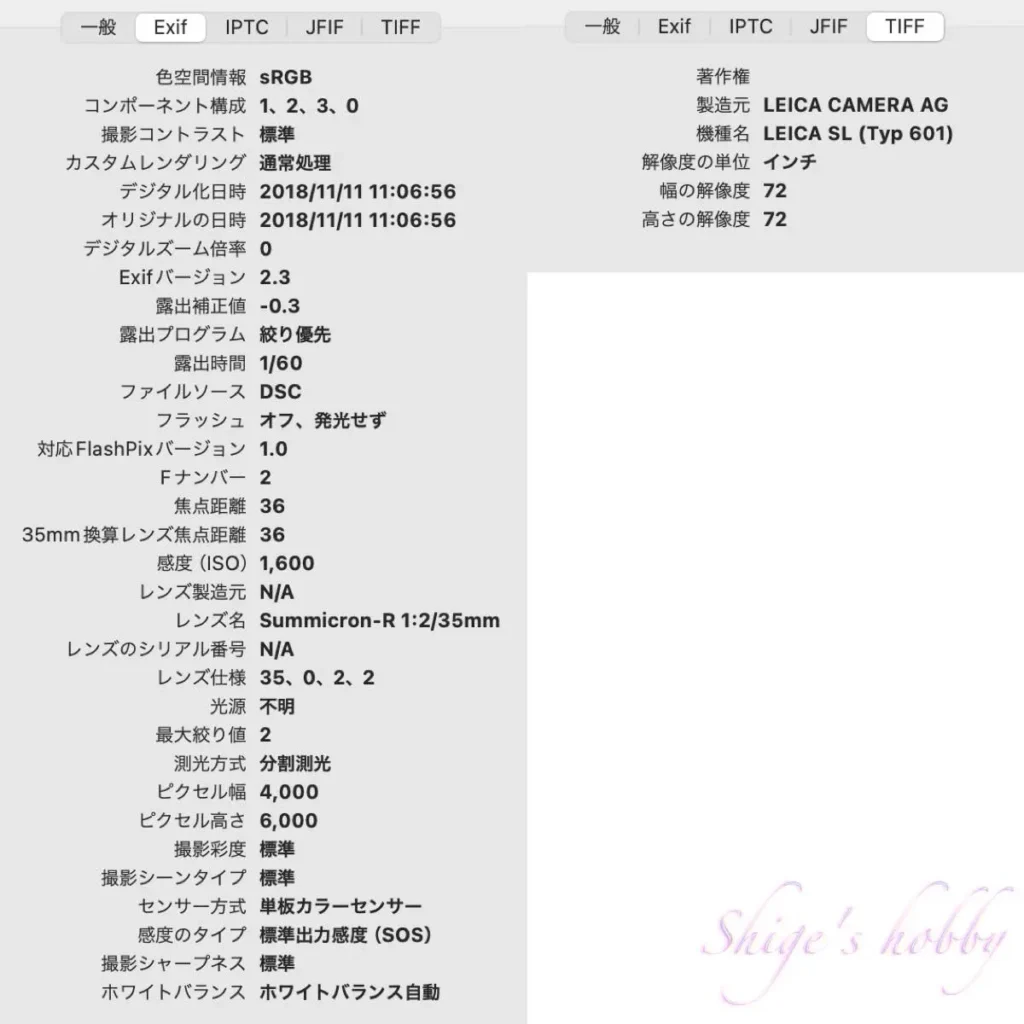
The SONY α7Sii has 12 megapixels, and with this number of pixels, image quality is not an issue, and the peripheral image distortion that is common with 35mm full-frame sensors is less noticeable than with higher-megapixel cameras.
In terms of usability, the EVF’s magnification function allows you to accurately determine the focus point, and since the second-generation mirrorless α has been equipped with image stabilization, it has become easier to use R-mount lenses.
Sony cameras do not have a standard function for registering the focal length or name of a manual focus lens in Exif data, so you will need to edit the Exif data after shooting or use an app that is no longer on sale.
■Medium Format Digital Sensor
When used with the HASSELBLAD X2D-100C medium format digital camera, vignetting is barely noticeable, likely due to the wide image circle. However, the corners, which are already noticeable even with 35mm film, become even more noticeable with the larger sensor size, making this lens best suited for use with 35mm film.
In the example below, the left is the entire image and the right is a close-up of the bottom left corner. You can see that the person in the focal plane is blurred. This is within the acceptable range if the image emphasizes the center of the subject.
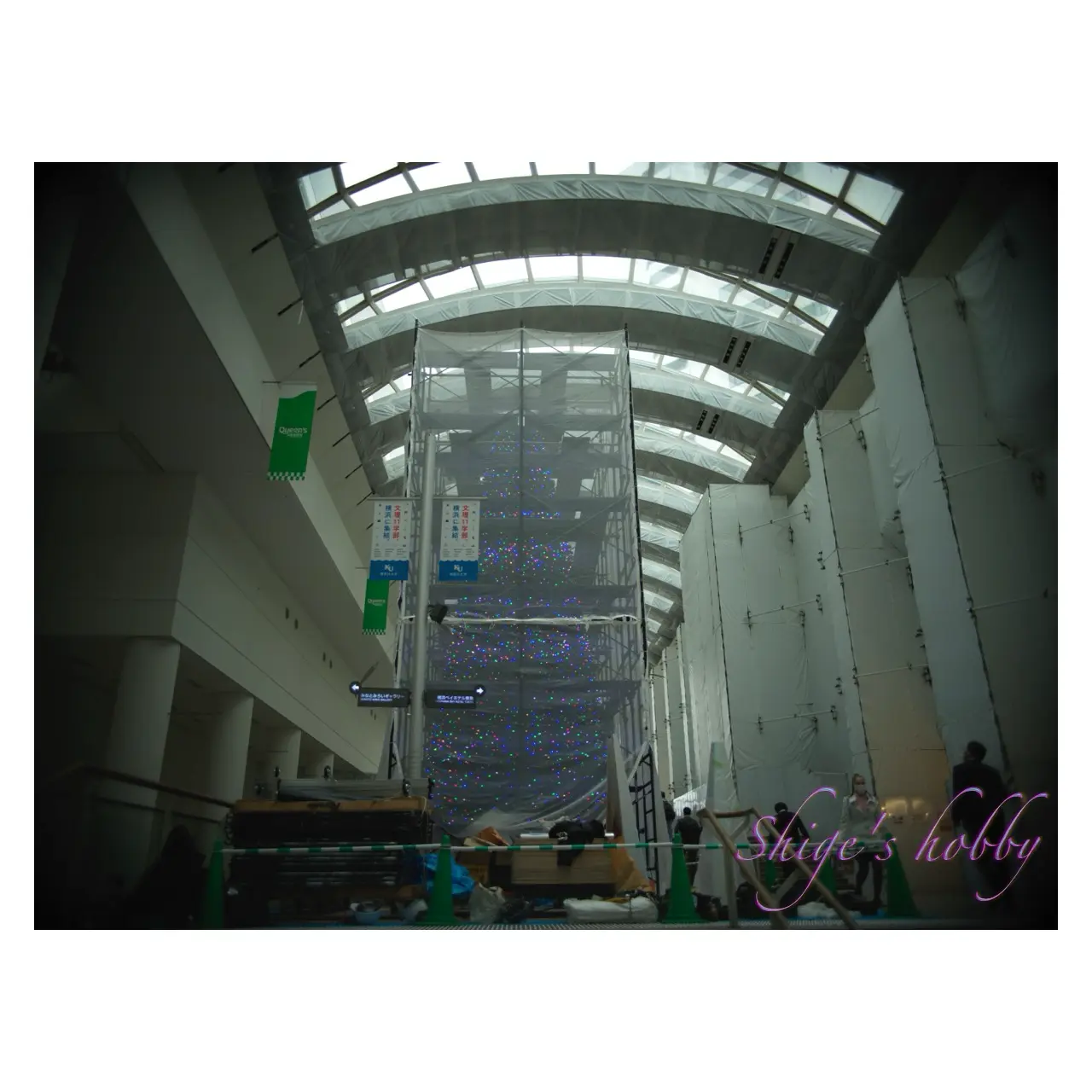
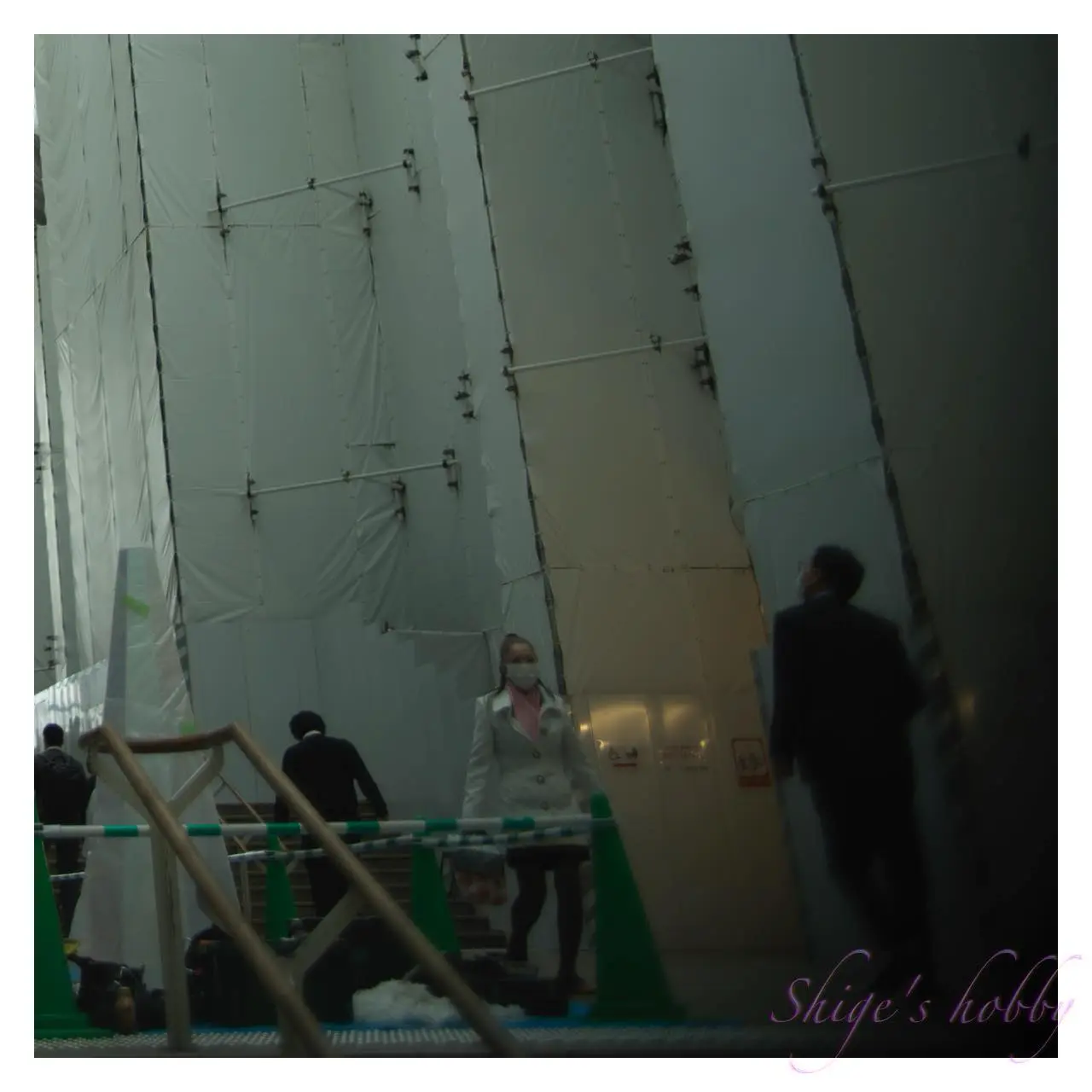
3.Summary
In conclusion, to sum up the Summicron-R 35mm Type I and its older models, central rendering is fine and, depending on the subject, most digital cameras will produce acceptable rendering.
Looking at the entire image, the performance is sufficient for film photography, but with digital cameras, 20 megapixels seems to be the limit, and with higher pixel count cameras, there can be noticeable roughness in peripheral rendering.
The acceptable range depends on the output size and the photographer, so if you’re satisfied with some test shots, you’ll be able to enjoy the unique design and luxurious nine-element lens.
Specifications, considerations, etc.
The first M-mount Summicron was nicknamed the legendary 8-element lens, and it would seem appropriate for the first R-mount Summicron to have a similar legend, but no such nickname or legend remains. This is likely because Japanese manufacturers are dominant in lenses for SLR cameras, and Leica is not very prominent in this field, resulting in few lens users.
With the lens hood removed, the lens has a tapered appearance, with a hood fixing pin on the barrel. This design is seen on R-mount lenses from the early 1970s, and the Summilux-R 50mm (earliest model), Elmarit-R 28mm (first generation), Elmarit-R 35mm (second generation), Elmarit 19mm (old model), and Elmarit 24mm all use this hood fixing pin.
This method has the advantage of providing a more secure connection between the lens and hood than the hook-type hood attachment method seen on the older Summicron 50mm.
■DISTAGON 35mm F2
The original R-mount Summicron 35mm featured a 7-group, 9-element lens configuration. Another lens with a similar 7-group, 9-element configuration is the Carl Zeiss Distagon 35mm F2 for SLR cameras.
The Distagon 35mm f/2 was released in 2006 in Nikon F and M42 mount versions without a built-in CPU, followed shortly thereafter by the Pentax K mount.
In 2010, the Nikon F and Canon EF versions with the same lens configuration but with a built-in CPU were released.
In 2016, the Nikon F and Canon EF versions with the same lens configuration but with a new exterior and MILVUS brand name and built-in CPU were released.
A diagram of the old Summicron’s lens configuration can be found on page 51 of Quarterly Classic Camera No. 17, “Special Feature: Leica SLR R Lenses vs. M Lenses,” so I’ve traced it and included it below. Comparing the two, the Summicron R 35mm (Old) has its lens elements scattered throughout the entire lens barrel, while the Distagon (now MILVUS) 35mm f/2 has its elements concentrated in the rear lens element, making them completely different. However, it’s interesting to note that they look similar just by looking at the name.
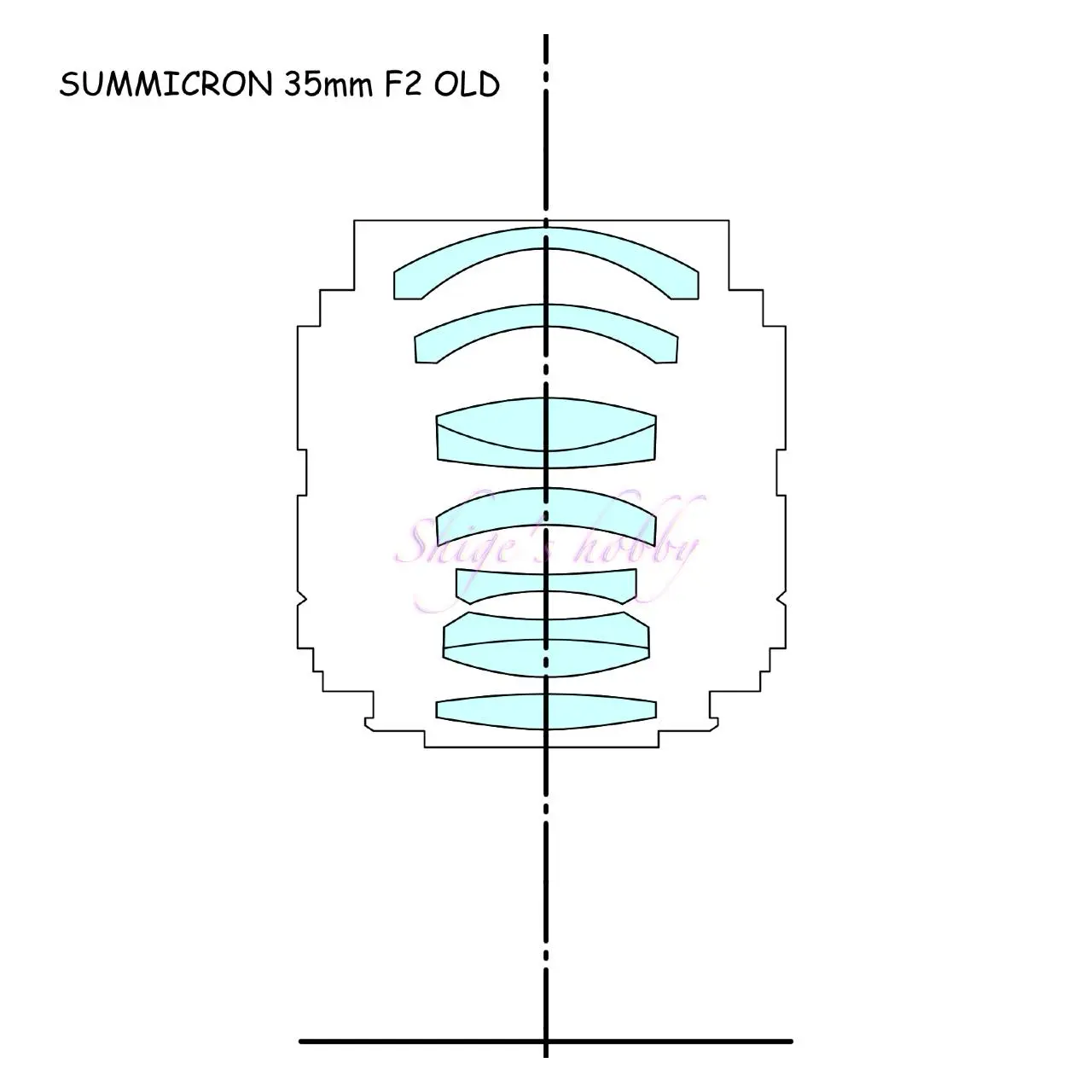
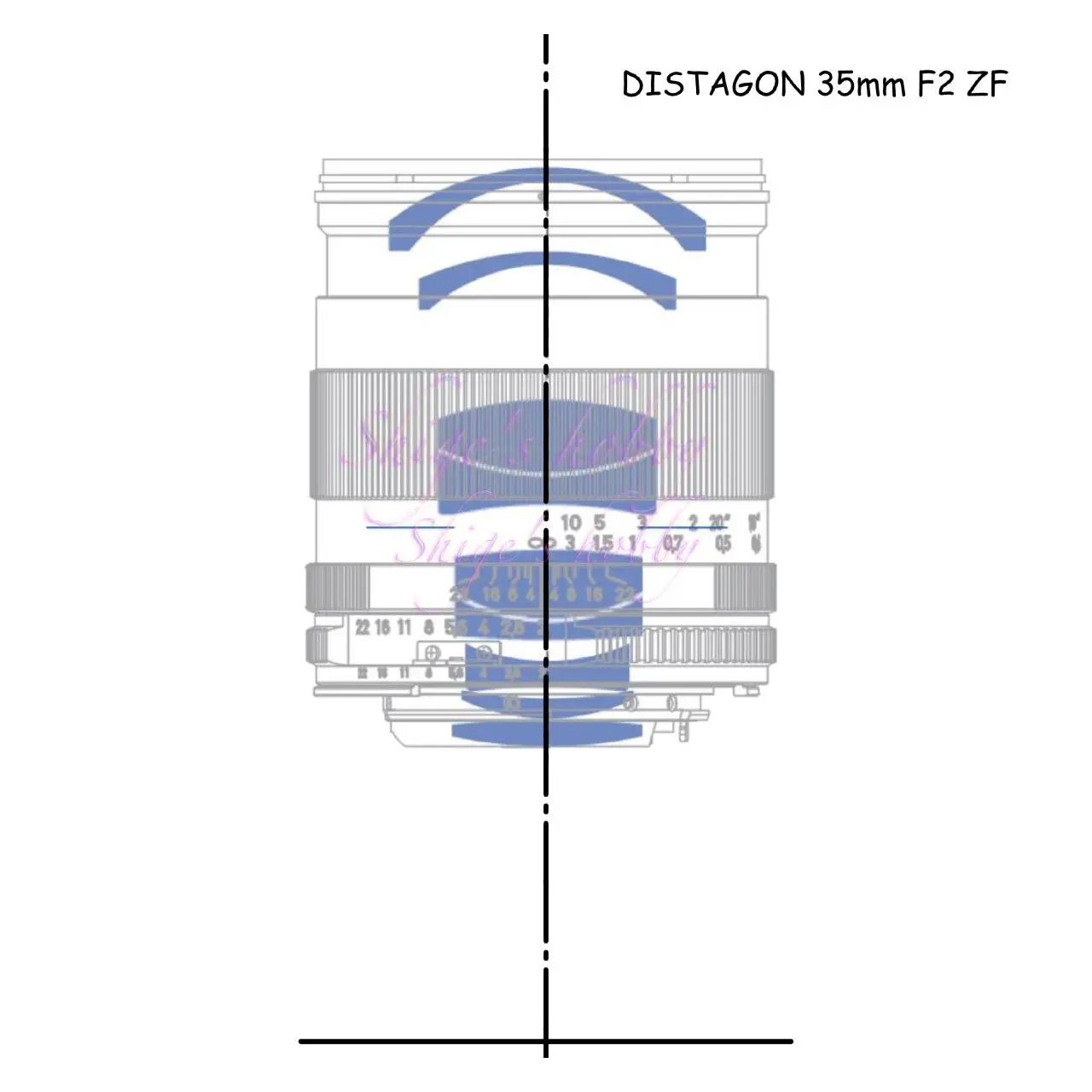
| Lens name | SUMMICRON R 35mm(Typ-I) | DISTAGON 35mm |
| focal length(mm) | 35 | 35 |
| Maximum aperture | 2 | 2 |
| Minimum aperture | 16 | 22 |
| Lead blade | 8 | 9 |
| Lens configuration | 9element in 7group | 9element in 7group |
| Minimum distance(m) | 0.3 | 0.3 |
| Lens length(mm) | 61.5 | 72(Nikon-F) |
| Lens max diameter(mm) | 66 | 63.4(Nikon-F) |
| Lens hood | 12509 | Bayonet type cylindrical hood |
| Filter diameter(mm) | Series 7(or E48) | 58 |
| Weight(g) | 508 (with hood and Filter 569) | 240 |
| Lens mount | LEICA R | NIKON-F |
| Production numbers | 11,316 | – |
| Release date | 1970 | 2006 |
Reference links
- Leica Wiki 「SUMMICRON-R 35mm I」
- Canon Leica-R Compatibility Database
- Cosina to release “Carl Zeiss Distagon T*” for Nikon F mount – Digital Camera Watch
- Cosina to release “Distagon T* 2/35” with built-in CPU for Canon and Nikon on the 24th – Digital Camera Watch
- Distagon T* 2/35 ・Zeiss official PDF
- ZEISS Milvus 2/35・Cosina official information
- SUMICRON R 35mm New・Shige’s hobby
- HASSELBLAD X2D・Shige’s hobby
- LEICA SL typ601・Shige’s hobby
- CANON EOS 1D Mk-IV・Shige’s hobby
- CANON EOS-1Ds Mark-III・Shige’s hobby
- SONY α7SII・Shige’s hobby
- LEICA R8・Shige’s hobby
- MINOLTA DiMAGE Scan Multi PRO・Shige’s hobby
Affiliate links
- Leica lens・Ads by Amazon
- Leica digital・Ads by Amazon
- Leica camera body・Ads by Amazon
- Leica accessory・Ads by Amazon
- Leica book・Ads by Amazon

Amazon Prime Sale
Update history
- 2025.10.19
- 2025.1.13
- 2024.02.26
- 2022.06.15

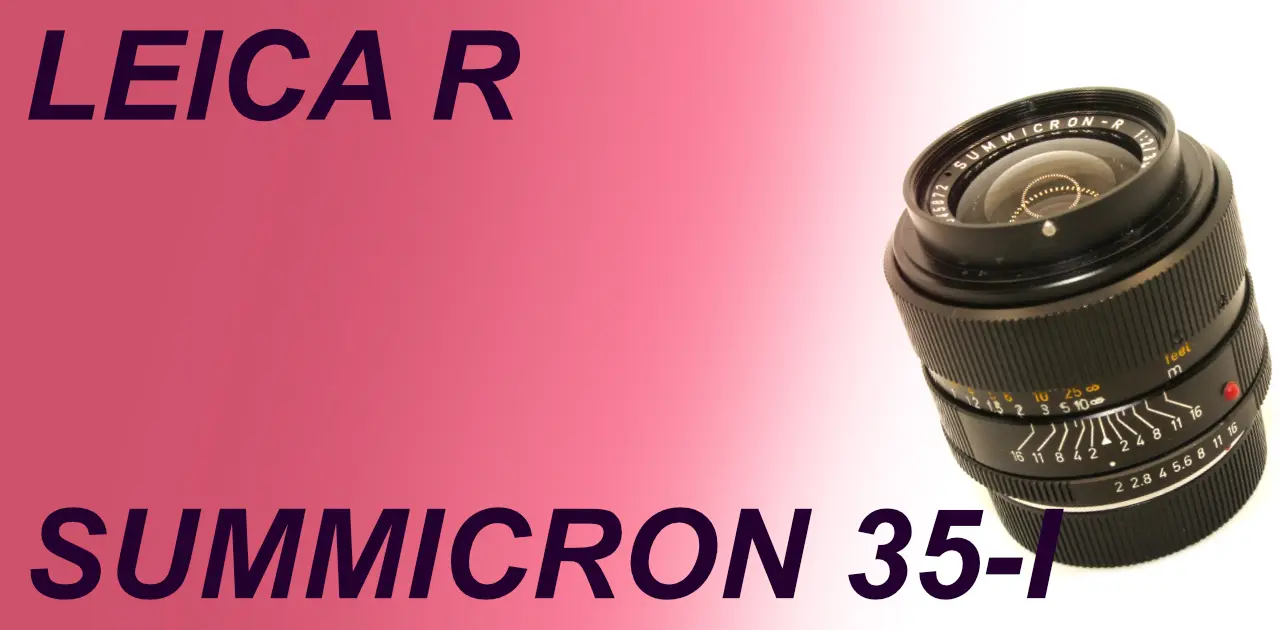

Be First to Comment